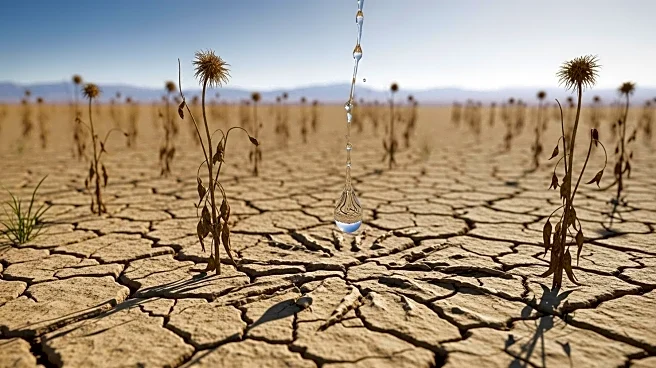What is the story about?
What's Happening?
In 2023, West Africa experienced severe droughts affecting countries such as Niger, Mali, Burkina Faso, and coastal regions of Nigeria and Côte d’Ivoire. These droughts led to significant yield losses in crops like maize, wheat, soybeans, peanuts, and millet, raising concerns about regional food security. The Sahel region showed the highest vulnerability, with extreme weather events posing a significant threat to food security. The droughts were exacerbated by El Niño events, which contributed to unusually high temperatures and humidity during critical planting months, impacting crop germination and growth.
Why It's Important?
The droughts in West Africa have broader implications for global food security, as they highlight the vulnerability of agricultural systems to climate extremes. Countries like Brazil and Australia are expected to face increased drought exposure, while the USA, China, and India may see limited changes. Addressing these challenges requires an integrated approach involving public policy, corporate buyers, venture capital, and private capital to enhance global food security. The situation underscores the need for sustainable agricultural practices and international cooperation to mitigate the impacts of climate change on food production.
What's Next?
Countries like Nigeria are adopting measures such as the Kampala Declaration to intensify sustainable food production and promote agro-industrialization. These efforts aim to improve resilience against future climate extremes and ensure food security. The international community may need to increase support for affected regions through financial aid and technological assistance to develop adaptive agricultural practices.
Beyond the Headlines
The droughts in West Africa could trigger long-term shifts in agricultural practices and policies, emphasizing the importance of climate-resilient crops and sustainable farming techniques. Ethical considerations arise regarding the equitable distribution of resources and support to vulnerable communities affected by climate change.

















